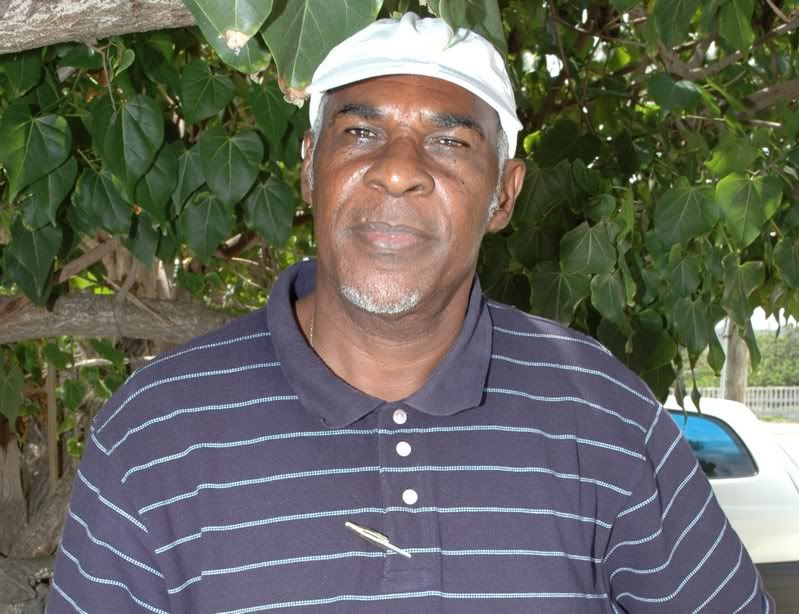 Trevor "Boots" Harris, a music journalist, has worked for the past forty years with all the major print media houses in Jamaica, including the Gleaner, Star, Jamaica Record, and Jamaica Herald. Over the years T. "Boots" has also published a number of articles in music magazines such as Vibrations, Reggae-Vibrations, Roots News, and Sound and Stage Entertainment News. He syndicates the weekly "Entertainment Roundup" feature on South Florida's "Mystic 1400 AM Radio each Monday and online at www.irietimes.com and www.reggaenews.co.uk. T. "Boots" has just completed his first book, Understanding Reggae and Rastafari, in which he digs deep into ska, jazz, reggae, and the new and exciting musical cathedrals that are known as dancehalls.
Trevor "Boots" Harris, a music journalist, has worked for the past forty years with all the major print media houses in Jamaica, including the Gleaner, Star, Jamaica Record, and Jamaica Herald. Over the years T. "Boots" has also published a number of articles in music magazines such as Vibrations, Reggae-Vibrations, Roots News, and Sound and Stage Entertainment News. He syndicates the weekly "Entertainment Roundup" feature on South Florida's "Mystic 1400 AM Radio each Monday and online at www.irietimes.com and www.reggaenews.co.uk. T. "Boots" has just completed his first book, Understanding Reggae and Rastafari, in which he digs deep into ska, jazz, reggae, and the new and exciting musical cathedrals that are known as dancehalls.1. What is dancehall?
Dancehall is an attitude, a no-nonsense state of mind that calls "a spade a spade," and it's an expression of self through music and dance that highlights social, political, religious, and economic issues as they affect Jamaicans at every imaginable level. But even more importantly, they show how these issues impact inner city residents.
2. How did dancehall begin?
Dancehall began with the sound systems playing at dances throughout Kingston at established dancehalls such as Forrester's Hall (North Street), Chocomo Lawn (West Kingston), Caterer's Hall - Manchester Square (Race Course), Grandmaw's Joint -Wellington Street-West Kingston), and the renowned 10 Lissant Road (Off North Street).
As a young man I checked out sound systems such as Tom's "The Great Sabastion," Lloyd "The Matador," Duke "The Trojan" Reid, "Sir Coxsone" Dodd, Jack Ruby, High Power, and Prince Buster. These were the top sound systems of the late 1950s, 60s, and 70s.
3. Who were the pioneers of dancehall?
The pioneers of early Jamaican music were Wilfred "Jackie "Edwards, Owen Gray, Millie Small, Lee "Scratch" Perry, King Stitt, Hugh Roy, and Prince Buster. The 1970's ushered in the likes of Brigadier Jerry, Josie Wales, Charlie Chaplin, Yellow Man, Super Cat, General Trees, and Lt. Stitchie. In the 1990s, the aforementioned DJs literally became the voice of the people, as they were able to connect with the issues and grouses of the people.
4. What is the difference between reggae and dancehall?
The difference between reggae and dancehall is quite obvious. Reggae is represented by the likes of Third World, Freddie McGregor, Bob Marley, Dennis Brown, Gregory Isaacs, and Richie Stephens who are accepted and classified as reggae acts.
Dancehall, on the other hand, is predominantly hardcore in it's presentation. Thus, the dancehall artistes tend to be brutally frank in expressing their feelings and concerns about issues. Bounty Killer, Movado, Vybz Kartel, Elephant Man, Beenie Man, and Mr. Vega are among the ruling generals of the dancehall.
5. How did you discover dancehall?
I am, was, and will always be among those music journalists who have chronicled the progress, setbacks and the controversies that Jamaican music, in all it's varied forms, has encountered. I believe that reggae and dancehall are both capable of bringing the people of our island nation, Jamaica, together, like how Bob Marley has used reggae music to inform and soothe the world.
***
2 comments:
great post.
i am huge fan of dancecall. i love the energy & the riddim of the music. when i'm not trying to be mellow, when i need to dance & release some energy i turn to dancehall...love jah cure, richie spice, Sizzla (beloved favorite), bounty killa, and remember Shaba? lol
Give thanks, PW!
Yes, ol Shabba.
But my all time favorite is the great Sizzla--"Praise ye Jah"
Bless,
Geoffrey
Post a Comment